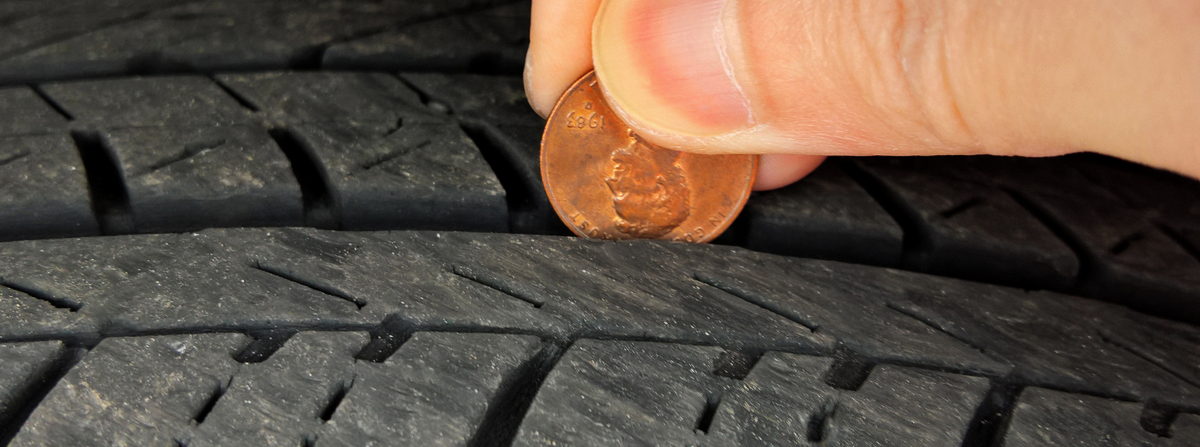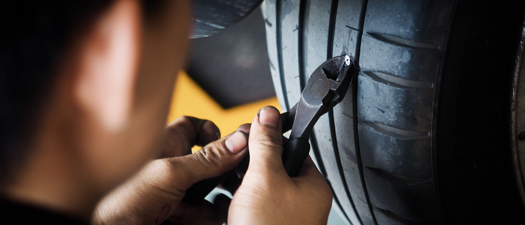
Aug 29, 2019
10 Basic Preventative Maintenance For Your Car | Sullivan Tire and Auto Service
Although you may get the occasional oil change or maintenance on our vehicles when it's absolutely necessary or in the case of an emergency but to keep your vehicle running smoothly, all types of preventative maintenance should be done on your vehicle regularly. By having the basic maintenance done regularly on your vehicle, you're:
- Saving money on potential component damage due to neglect
- Maintaining a smooth ride
- Prolonging the life of your vehicle
- Increasing or maintaining gas mileage
Here are 10 Basic Preventative Maintenance services you should have performed on your vehicle regularly. For preventative maintenance services specific for your vehicle, please check your owners manual for additional details.
1. Air Filters
When you think of vehicle maintenance, air filters are probably not at the top of your to-do list or they haven't even made it to the list at all. Although they're not in plain sight, they're working hard to keep clean air to circulate throughout the components and the inside of your vehicle.
Benefits to Replacing Air Filters
- Clean air is circulated through your vehicle
- Reduces amount of allergens, like pollen, in the cabin of you vehicle
- Allows components, such as your A/C, to run smoothly
How Often Should I have my Air Filters Replaced?
- When the air filter appears to be congested with debris like leaves, sticks, dirt, dust, etc., and is dark in color, you will need to replace the filter
- Unsure? Our ASE Certified techs can pull the air filters for you to show and discuss the status of the filters

2. Alignment
A wheel alignment consists of adjusting the steering and suspension components of your vehicle to maximize tread life and ensure that your vehicle tracks straight. A proper alignment is necessary for even tread wear and precise steering. A misaligned vehicle could also affect your gas mileage.When Should I have my Vehicle Aligned?
- Alignments should be checked at least once a year
- At the time of a new tire purchase
- If you've hit a curb or a pothole
- If your vehicle has been in any type of accident no matter how minor
To request an alignment appointment, click here.

3. Battery Checks
Checking your battery is a quick and easy way to see if your car's battery charge is good to go or if you're in need of a new one. A typical original equipment (OE) car battery lasts about four years under normal conditions.
Benefits to Car Battery Check
- A weak car battery can fail at a moment's notice without warning, especially in cooler temperatures
- Regular battery checks will alert you to potential malfunctions sooner.
How Often Should I have my Car Battery Serviced?
- We recommend the battery be tested annually, preferably in the fall before the temperatures drop.
To request a battery check appointment, click here.

4. Fluid Flushes and Exchanges
A fluid flush or exchange is a service in which a technician flushes out the fluids in your vehicle that keep it's components functioning properly, and exchanges it with new fluids. Why is this so important? Over time, debris and contaminants can build up in the fluids and eventually cause your vehicle's components to malfunction or have permanent damage.
Type of Fluid Flushes
Check your vehicle's owner manual to see recommended service intervals. For more information on fluid exchanges, click here.
To request a fluid exchange appointment, click on any of the fluid exchange links above.

5. Tire Air Pressure Checks
Maintaining proper inflation pressure is crucial for getting the most out of your tires, both in long mileage and a comfortable ride. The air pressure for your tires is measured is pounds per square inch (PSI) and the PSI reading for your vehicle's tires can be found on the door frame of the driver side door or within the owners manual.
How Often Should I have my Tire Pressure Checked?
- Even a perfectly healthy tire loses 1-2 PSI per month, so it's important to check your pressures often. We recommend checking once a month when the tires are "cold" and have been sitting for at least 3 hours.
6. Wiper Blades
Wiper blades are easily forgotten about until you need them! We’ve all been in the situation of getting caught in a rainstorm while driving, turning on the wiper blades, and find they are streaky and not thoroughly cleaning the windshield.
Wipers are a rubber product, and just like tires, they wear out over time. Road debris and grime, sunlight, and moisture all play a part in breaking down the rubber material in wiper blades. In addition, a torn or severely worn wiper blade could scratch the windshield. Be sure to periodically check your wiper blades for tears and the washer fluid functionality. TIP: Clean your wiper blades with a bit of rubbing alcohol.
To request a wiper blade replacement appointment, click here.

7. Fuel Induction System
A fuel induction service cleans out debris, deposits, and other contaminants from your engine's system. If it's left without cleaning, overtime it can cause damage hard starting, poor fuel economy, and other component failures.
How Often Should I have my Fuel Induction System Serviced?
For this service, it is best to check your vehicle owner's manual and to also consult an ASE Certified Technician to verify it's status.
When you're ready to request an appointment for fuel induction system service, click here.

8. Brake Service
Brakes are never something to overlook and continuous maintenance is important. Having brakes inspected on a regular basis can reduce the risk of brake failure and can identify problems before they become worse and more costly.
How Often Should I have my Brakes Inspected?
- Brakes should be inspected at the time of each tire rotation, about every 6,000 miles or anytime you notice one or more of the following problems
To request an appointment for brake service, click here.

9. Oil Change
An oil change service is the simplest yet most important preventative maintenance service for your vehicle. Engine oil keeps all the moving parts in the engine operating smoothly and cleanses the engine of potentially damaging debris. It's important to consistently change the oil to keep all the other parts of your vehicle functioning at top performance.
How often Should I have my Oil Changed?
- For standard oil, we recommend changing the oil and oil filter every 3,000-5,000 miles under normal driving conditions
- Many vehicles today come equipped with Synthetic Oil and this oil can last up to 10,000-12,000 miles
To request an oil change appointment, click here.

10. Tire Rotations
Regularly rotating your tires will help you achieve more uniform wear. Unless your vehicle's owner’s manual has a specific recommendation, the guideline for tire rotation is approximately every 5,000-7,000 miles, or roughly every other oil change.
-
Frequent tire rotations and tire inspections can help to identify an alignment or steering problem before too much damage occurs to the tire
-
This service is complimentary for the life of the tires when you purchase our Tire Maintenance and Protection Plan (TMPP)
To request a tire rotation appointment, click here.
Book Your Appointment Online
Easily request an auto or tire service on our website today!
Request an AppointmentRelated Articles






